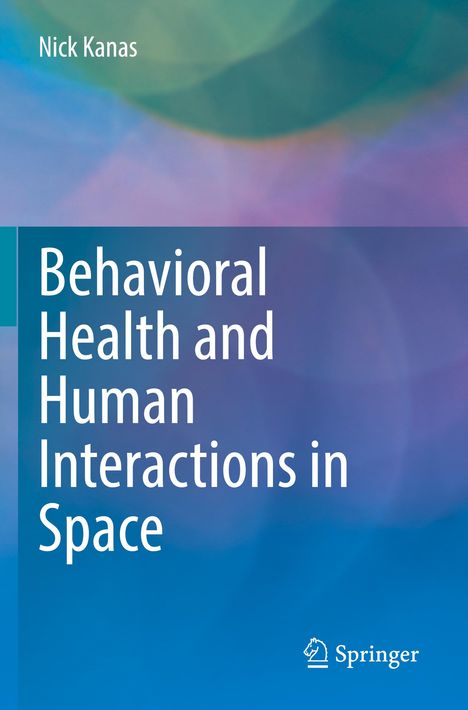Nick Kanas: Behavioral Health and Human Interactions in Space, Kartoniert / Broschiert
Behavioral Health and Human Interactions in Space
Buch
- Verlag:
- Springer International Publishing, 02/2024
- Einband:
- Kartoniert / Broschiert, Paperback
- Sprache:
- Englisch
- ISBN-13:
- 9783031167256
- Artikelnummer:
- 11754882
- Umfang:
- 448 Seiten
- Nummer der Auflage:
- 24001
- Ausgabe:
- 1st edition 2023
- Gewicht:
- 674 g
- Maße:
- 235 x 155 mm
- Stärke:
- 25 mm
- Erscheinungstermin:
- 3.2.2024
- Hinweis
-
Achtung: Artikel ist nicht in deutscher Sprache!
Weitere Ausgaben von Behavioral Health and Human Interactions in Space |
Preis |
|---|
Klappentext
This textbook covers the range of psychological and interpersonal issues that can affect astronauts living and working in space. It deals with the three major risk areas cited by NASA s Behavioral Health and Performance Element: Behavioral Medicine, Team Risk, and Sleep Risk.Based on the author s more than 50 years of experience in space-related activities writing, conducting research, and teaching undergraduate and graduate courses, the book follows a comprehensive range of topics that include: cognitive effects; psychiatric issues; cultural influences; salutogenic and positive aspects of space travel; autonomy and delayed communication; current plans to return to the Moon and Mars; analysis of study environments such as the polar regions, submersible habitats, and space simulation facilities; and more. It draws on research, literature, and case studies from the 1950s onward, showing readers in a natural and accessible way how the field has progressed over time.
The book contains ample end-of-chapter summaries and exercises as well as a complete glossary of key terms. As such, it will serve students taking courses in aerospace psychology, psychiatry, sociology, human factors, medicine, and related social sciences, in addition to space industry professionals and others interested in the complexities of people living and working in space.


